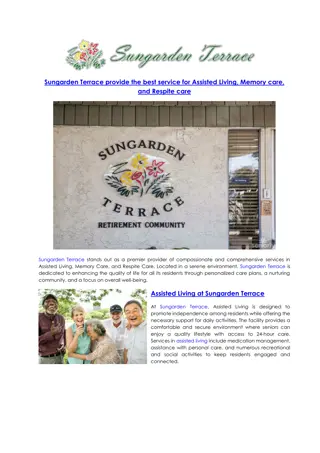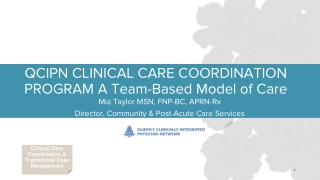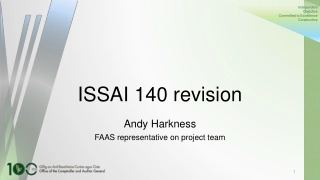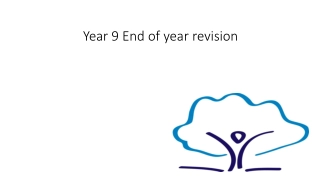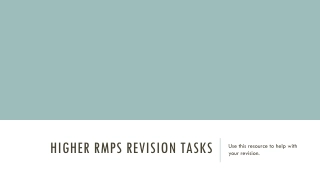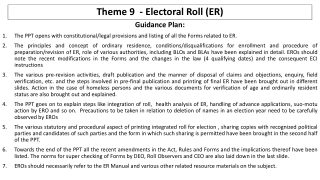Alberta Home Care Policy Revision 2023 Overview
The Alberta Home Care Policy Revision 2023 presentation delves into the background, acknowledgements, and validation process of the revised policies. It highlights the adaptation of policies from the 2002 Alberta FNIHCC Program Policies Manual and recognizes the contributions of various individuals and groups involved in the revision process. The presentation emphasizes the value of policies and introduces newly added policies, such as delegation to unregulated care providers, palliative care, and employee mental health. It also provides information on accessing the updated Policy Manual.
Alberta Home Care Policy Revision 2023 Overview
PowerPoint presentation about 'Alberta Home Care Policy Revision 2023 Overview'. This presentation describes the topic on The Alberta Home Care Policy Revision 2023 presentation delves into the background, acknowledgements, and validation process of the revised policies. It highlights the adaptation of policies from the 2002 Alberta FNIHCC Program Policies Manual and recognizes the contributions of various individuals and groups involved in the revision process. The presentation emphasizes the value of policies and introduces newly added policies, such as delegation to unregulated care providers, palliative care, and employee mental health. It also provides information on accessing the updated Policy Manual.. Download this presentation absolutely free.
Presentation Transcript
Alberta Home Care Policy Revision 2023 Marie Caluttung, BScN RN, Home Care Nurse Advisor Pam Tailfeathers Buffalo, BN MSc RN, Special Projects July 6, 2023
Land Acknowledgment I acknowledge that what we call Alberta is the traditional and ancestral territory, and home to the peoples of Treaty 6, 7 and 8. First Nations, M tis and Inuit have lived here and cared for these lands for generations. I am grateful for the traditional Knowledge Keepers and Elders who are still with us today and those who have gone before us. May we work in partnership to serve present and future generations. 2
In this presentation Background and Acknowledgements of the Revised Policies Validation Process Definition of Policies The Value of Policies Policy Template Added Policies o Policy 2.5.18. Delegation to an Unregulated Care Provider o Policy 8.21 Palliative Care o Policy 7.21 Employee Mental Health Case management and the LPN scope of practice Where to find the new Policy Manual 3
Background These 2023 policies have been adapted from the 2002 Alberta FNIHCC Program Policies Manual, revised by the HCCPNWG and those who attended the HCN 2022 conference 4
Acknowledgements Home and Community Care Program Nurses Working Group (HCCPNWG) Treaty 6: Marina Sangrey, LPN Saddle Lake Health Services Susan McGillis, RN BN Enoch Health Servvices Lani Blackwater, RN BN Piikani Health Services Cheryl Sorenson, RN Siksika Health Services Treaty 7: Holly M. Best, RN BN Kee Tas Kee Now Tribal Council Shelly Gladue, RN BScN Bigstone Health Commission Treaty 8: 5
Acknowledgements ISC Alberta Regional Home care Team Lorene Weigelt, Pam Tailfeathers Buffalo and Marie Caluttung Kee Tas Kee Now (KTC) Tribal Council 6
HCCP Validation Process 1. Revision and editing of the Policy Manual (2002) by the HCCPNWG. 2. Fall 2022 the SE FNIM Program attended the Alberta FNIHCC nursing education conferences (Edmonton & Calgary) each with 100+ participants, most of whom were HCC nurses and coordinators. Feedback was provided by the participants on the Table of Contents and additional policies were suggested and added as identified. 3. Regional Home and Community Care team reviewed and proofread the draft product. 4. Distribution to the communities of Alberta Region 7
Defining Policies Policies provide guidance, standardization, and consistency in practice and reduce risks for clients and staff. Should coincide with provincial governing bodies and always within the scope of practice of the staff member. Best understood as a set of overarching principles and goals on how care is delivered and accessed. 8
The Value of Policies For Individuals and Families Policies are designed to promote client rights, client satisfaction, fairness, quality of care appropriate training and work satisfaction. For Communities Polices encourage ongoing program evaluation, quality improvement, cost-effectiveness, and client satisfaction. 9
The Value of Policies For Community Leadership Have responsibility of receiving, understanding & approving policies Provide support for accreditation For Program Staff Policies provide clear direction & enable staff to conduct their activities with confidence & efficiency. 10
Policy Template Page 37 in the Policy Manual 11
Policy Template Policy Statement: A written statement that clearly indicates the position and values of the organization on a given subject that is brief and concise. A policy identifies what needs to be done to achieve the standard. Policy Rationale: This section provides supporting evidence, background, and rationale for the policy statement. Policy Details: Outlines what needs to be done to achieve the policy. Process Guidelines: Outlines the processes on how to achieve the policy. Expected Outcome: Explains how to implement the policy into daily practice and what will happen when the policy is followed properly. Tools and Resources: This section will contain a list of helpful resources such as websites, laws, regulations, forms, guidelines/protocols or documents that could provide examples or direction. Related Policies: Related policies will be interactive and interlinked for easy reference 12
New HCCP Policies 40 Policies added by HCCPNWG & SE 9 more added by participants at HCN conference in Fall 2022 49 New Policies added overall All other HCCP policies were revised to reflect current practice, resources and tools available 13
New HCCP Policies 2.1.6: 2.5.14 2.5.15 2.5.16 Care 2.5.17 2.5.18 3.3.1 Email) 3.3.2 3.3.3 4.3 4.6 4.7 4.8 4.20.3 5.2.4 7.10 Infestations (Bed Bugs/Scabies/Lice) 7.16.1 Smoke Free Environment 7.16.2 Work Refuse and Withdrawal of Services 7.16.3 Animals/Pets in the Environment/Home 8.13.1. Medication Reconciliation 8.6 Harm Reduction 8.7 Point of Care Risk Assessment 8.8.1 Abuse: Adult 8.8.2 Abuse: Child 8.8.4 Abuse: Elder Services: Transportation of Client in Staff Vehicles Access to Services: Jordan s Principle Access to Services: Translator/Interpreter Access to Services: Person and Family Centered 8.14 8.14.1 8.14.2 Setups 8.14.3 8.14.5 8.15 8.16.1 8.18 8.21 8.21.1 8.21.3 8.21.4 8.21.6 8.23 8.25 Medication Administration Narcotics/ Controlled Substances Pre-pouring Medications and Oral Medication Injectable Medications (IM/SC Inhalation Therapy Sharps Management Oxygen Safety in the Home Wound Care Palliative Care (supportive service) Early Identification Palliative Assessment Tools Managing Symptoms Preparing for End of Life Pronouncement Medical Assistance in Dying Access to Services: Therapeutic Relationships Access to Services: Delegation to Unregulated Care Providers Personal Health Information: Transmission: (Fax, Privacy and Mobile Technology: Telehealth Social Media Cultural Safety Violence in the Workplace Code of Conduct Dress Code Flu shot Certification Feedback/Compliments/ Complaints Added based on feedback at Fall Nurses gathering 2022 4.10.8 Contracted services 4.20.22 Advanced Practice Nursing 7.20 Debriefing after Trauma 7.21 Employee Mental Health 8.13.11 Medication Assistance- Delegation to HCA 8.29 Caregiver Burnout 8.30 Respite 8.31 Caregiver Grief 8.32 Safe Bathing 14
Policy 2.5.18. Delegation to an Unregulated Care Provider This policy outlines: the professional responsibilities and accountabilities of Registered Nurses (RNs) and Licensed Practical Nurses (LPNs) the responsibility and accountability of the nurse (RN, LPN) when assigning or delegating tasks to unregulated care providers (i.e., HCAs) 15
Policy 2.5.18 Delegation to an Unregulated Care Provider 16
Policy 2.5.18 Delegation to an Unregulated Care Provider Delegation is a three-part process: 1. Assessment of the client and their situation, as well as of the competence of the care provider. 2. Delegation of the task 3. Supervision 17
Policy 2.5.18 Delegation to an Unregulated Care Provider Delegation can be very complicated. It is recommended that nurses review: Decision-Making Standards for Nurses in the Supervision of Health Care Aides. (College of Licensed Practical Nurses of Alberta and the College of Registered Nurses of Alberta). (2010) 18
Policy 2.5.18 Delegation to an Unregulated Care Provider Expected Outcome: Nurses practice to their full scope, utilizing unregulated care provider resources wisely and appropriately, with the goal of ensuring that clients receive the best care from the appropriate staff member. 19
Policy 8.21 Palliative Care The palliative care approach is appropriate for any individual and/or family living with a life limiting illness due to any diagnosis, with any prognosis, regardless of age. The palliative approach to care may coexist with and enhance existing disease treatments, or it may be the total focus of care. 20
Policy 8.21 Palliative Care Expected Outcomes: The client and family have an increased understanding of the illness and can identify their values and goals. Clients will have a complete and documented advance care plan Clients have less anxiety as a result of the autonomy in care needs. Clients have a better quality of life and end of life. 21
Policy 8.21 Palliative Care 8.20.1. Early Identification 8.20.2. Advance Care Planning 8.20.3. Palliative Assessment 8.20.4. Managing Symptoms 8.20.5. Preparing for End-of-Life 22
Policy 7.21 Employee Mental Health The Alberta First Nations Home and Community Care Program (AFNHCCP)/Community is committed to: promoting and restoring the mental and physical well-being of all employees will identify possible workplace stressors through risk assessments to eliminate or reduce them where possible. 23
Policy 7.21 Employee Mental Health Supports and Tools: Occupational & Critical Incident Stress Management (OCISM) services are provided by (First Nations Inuit Health Branch) FNIHB to all nurses serving First Nations communities. The OCISM program was developed and implemented to assist nurses who are struggling with mental health concerns. The goal of OCISM services is to safeguard the well-being of nurses. 25
Policy 7.21 Employee Mental Health Supports and Tools Hope for Wellness: Available to all Indigenous people across Canada. Experienced and culturally competent counsellors are available by telephone and online chat 24/7 26
Policy 7.21 Employee Mental Health Supports and Tools Traditional healing practices to include; o Sweatlodge, Sundance, Tea dances, dancing & singing Elder-in-Residence Program Employee Assistance Program (EAP) for Federal Employees 27
Policy 7.21 Employee Mental Health Expected Outcomes The AFNHCCP/Community promotes the mental and physical well-being of all employees will identify possible workplace stressors through risk assessments to eliminate or reduce them where possible. All AFNHCCP/Community employees who are experiencing mental health concerns feel they are supported by all home care management and staff. 28
Updates Policy: Case Management and the LPN Case Management CLPNA have expanded the LPN role case manager and be able to complete an initial assessment Date of presentation August 30, 2023 on TSAG Telehealth CLPNA representative will attend as special guest 29
Dont forget Lippincott Procedure Manual on Onehealth.ca in Home Care Resources: Access procedures through Alberta Health Services (AHS) website Continuing Care Connection (CCC) website to support your practice. Lippincott is evidence-based reference, providing access to step-by-step guides for procedures and skills. This resource should be used in consideration of your clinical experience, context-specific information, client need, organizational policies, and the practice environment. 30
Next Steps Review policies Adopt, Adapt or revise them to your community needs or submit Feedback Form to the Regional Office to suggest a change to the policy Have your Health Director/Board of Directors/Chief and Council formally adopt Add community logo Sign off you have read them 31
Where you will find the Home Care Policy Manual Onehealth.ca under Nursing/Homecare/Resources 32
Questions Photo credit: Magda Ehlers 33
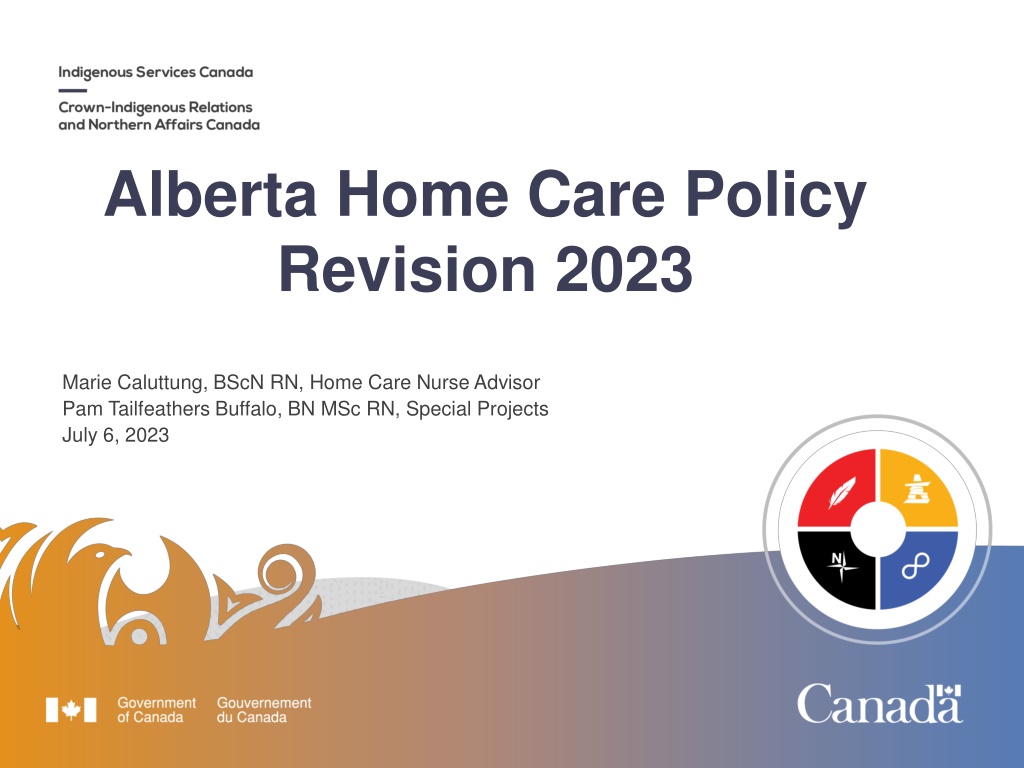

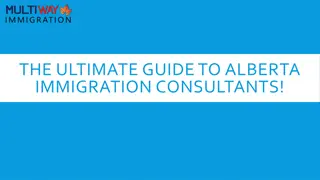

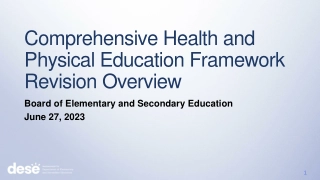
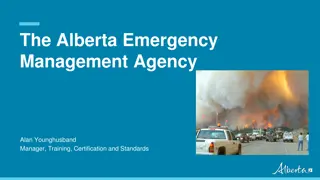



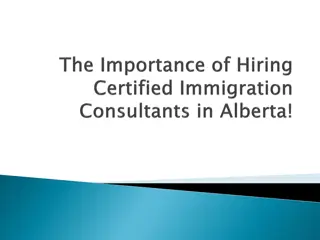


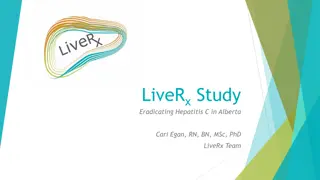
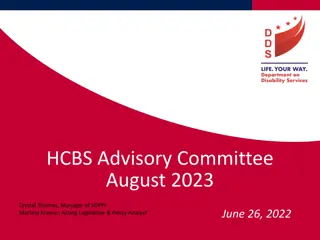


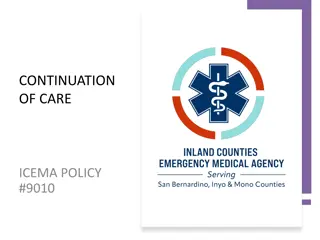






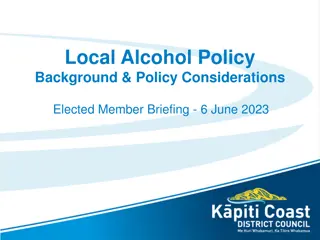

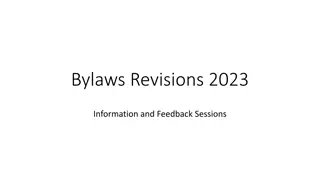

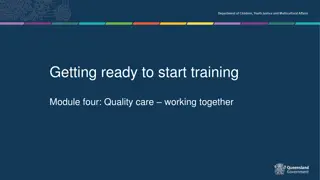


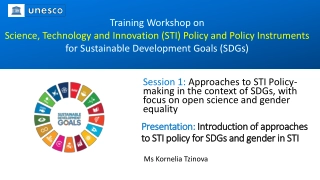


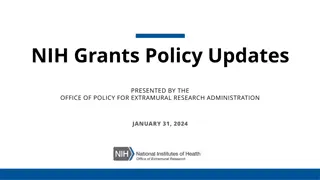

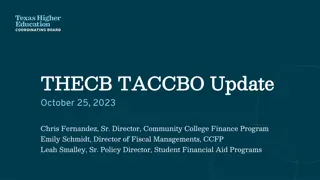
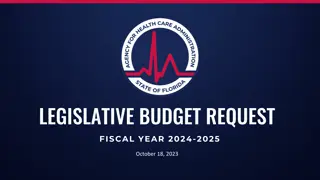
![Skincare Market Growth & Key Industry Developments [2030]](/thumb/26741/skincare-market-growth-key-industry-developments-2030.jpg)

